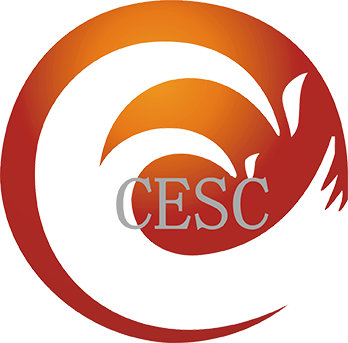- 原文
- 譯文
醫學論文英中對照樣式

Astragaloside IV:
May represent an alternative therapeutic approach for the treatment of patients with allergic rhinitis. It may attenuate allergic rhinitis via regulating the expressions of the transcription factors GATA-23, RORγt, T-bet and Foxp3, which commit T helper cells to the Th1 phenotype (Li et al., 2017).
In addition, it has been reported that astragaloside IV modulates eosinophil activation and trafficking in response to house dust mite allergen. Astragalosides treatment inhibited the counts of eosinophil in bronchoalveolar lavage fluid in ovalbumin (OVA)-induced animal asthma model, reduced the production of IL-4 and IL-13, and upregulated the frequency of CD4þCD25þ regulatory T cells and the mRNA expression of Foxp3 (Qi et al., 2017).
Relieves, by oral treatment, the swelling induced by the intra-articular injection of IL-1β, protected against IL-1β-induced damage of cartilage proteoglycan synthesis and chondrocyte proliferation, as well as inhibited joint inflammation and IL-1β, TNF-α and NO production in macrophages in rat adjuvant-induced arthritis (Qi et al., 2017).
Moreover, polysaccharides might attenuate the pathological progression or rheumatoid arthritis by exerting the pro-apoptotic and anti-inflammatory effects by regulating the PI3/Akt/mTOR-authophagy pathway and by reduction of PERK phosphorylation (Meng et al., 2017; Lu et al., 2016).
Flavonoids also exerts a protective effect against arthritis, in vivo, by regulating OPG/RANKL/NF-κB pathway (Liu et al., 2017).
Reduces inflammation by inhibiting endoplasmic reticulum stress and disrupting the crosstalk between autophagy and the PERK-eIF2α pathway, and these actions are positive for treating inflammatory pulmonary diseases (Dong et al., 2017).
Produces neuroprotective effect. It attenuates cognitive impairments induced by cerebral ischemia and reperfusion, via anti-inflammatory mechanisms (Li et al., 2017).
In addition, polysaccharides may represent a therapeutic approach for treating inflammatory bowel disease, such as ulcerative colitis (Lv et al., 2017; Zhao et al., 2016).
黃芪甲苷IV:
可能是治療過敏性鼻炎的一種替代治療方法。它可以通過調控的轉錄因子GATA-23、RORγt、T-bet和Foxp3——這些因子能夠使輔助性T細胞表現為Th1表型——的表達來緩解過敏性鼻炎(Li等人, 2017年)。
另外,據報道,黃芪甲苷IV可以調節屋塵螨過敏原引起的嗜酸性粒細胞的活化和運輸。黃芪皂苷治療抑制了卵清蛋白(OVA)-誘導的動物哮喘模型的支氣管肺泡灌洗液中的嗜酸性粒細胞計數,減少了IL-4和IL-13的產生量,并上調了CD4þCD25þ調節性T細胞的頻率和Foxp3的mRNA 表達(Qi等人, 2017年)。
在大鼠佐劑性關節炎中,口服治療可緩解IL-1β關節內注射引起的腫脹,防止IL-1β誘導的軟骨蛋白多糖合成和軟骨細胞增生,并抑制關節發炎以及巨噬細胞中IL-1β、TNF-α、NO的生成(Qi等人, 2017年)。
此外,多糖能夠通過調控PI3/Akt/mTOR自體吞噬通路和降低PERK磷酸化,發揮促凋亡和消炎作用,從而減輕風濕性關節炎的病理性進展(Meng等人, 2017年;Lu等人, 2016年)。
黃酮類還通過調控OPG/RANKL/NF-κB通路,在體內起到防止關節炎的作用(Liu等人, 2017年)。
通過抑制內質網應激和打斷自體吞噬和PERK-eIF2α通路之間的串擾來減少炎癥,這些作用對炎性肺病的治療有積極影響(Dong等人, 2017年)。
產生神經保護作用。它能通過消炎機制減輕大腦局部缺血和再灌注引起的認知損害(Li等人, 2017年)。
另外,多糖可能是治療潰瘍性結腸炎等炎性腸病的一種方法(Lv等人, 2017年;Zhao等人, 2016年)
相關閱讀















